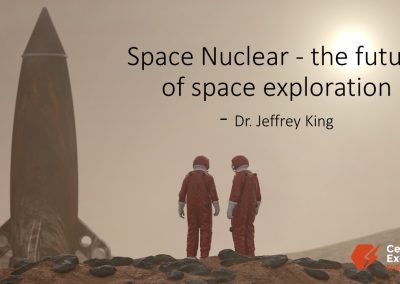Providing heat and electricity for extended missions far from Earth is a significant challenge facing any effort to explore the Solar System and beyond. Space nuclear technologies have provided heat and electric power for multiple missions to Mars, Jupiter, Saturn, and even beyond Pluto. The Voyager spacecraft, launched in 1977, were the first manmade objects to leave the Solar System. The probes are powered by radioisotope thermoelectric generators and are still sending back data from interstellar space. This presentation will provide an overview of the history of nuclear systems for space exploration and a brief survey of current and future space nuclear technologies which will enable continued exploration of the Solar System and future manned missions to the Moon and beyond.
Bio: Dr. Jeffrey King completed his PhD in Nuclear Engineering in 2006 as a member of the Institute for Space and Nuclear Power Studies at the University of New Mexico. Prof. King has been at Mines since 2009 as a Professor of Nuclear Engineering. He has remained active in the space nuclear power and propulsion field as a charter Member and previous Chair of the American Nuclear Society’s Aerospace Nuclear Science and Technology Division. Professor King’s research spans a wide array of space nuclear topics including nuclear system launch safety, space nuclear reactor control, space nuclear reactor shielding, and, most recently, the design and analysis of moderated low enrichment uranium fueled space nuclear reactors.
Follow-up Activity
Exploring Canada’s energy future | Centre of Excellence for Energy (centresofexcellencenb.ca)


